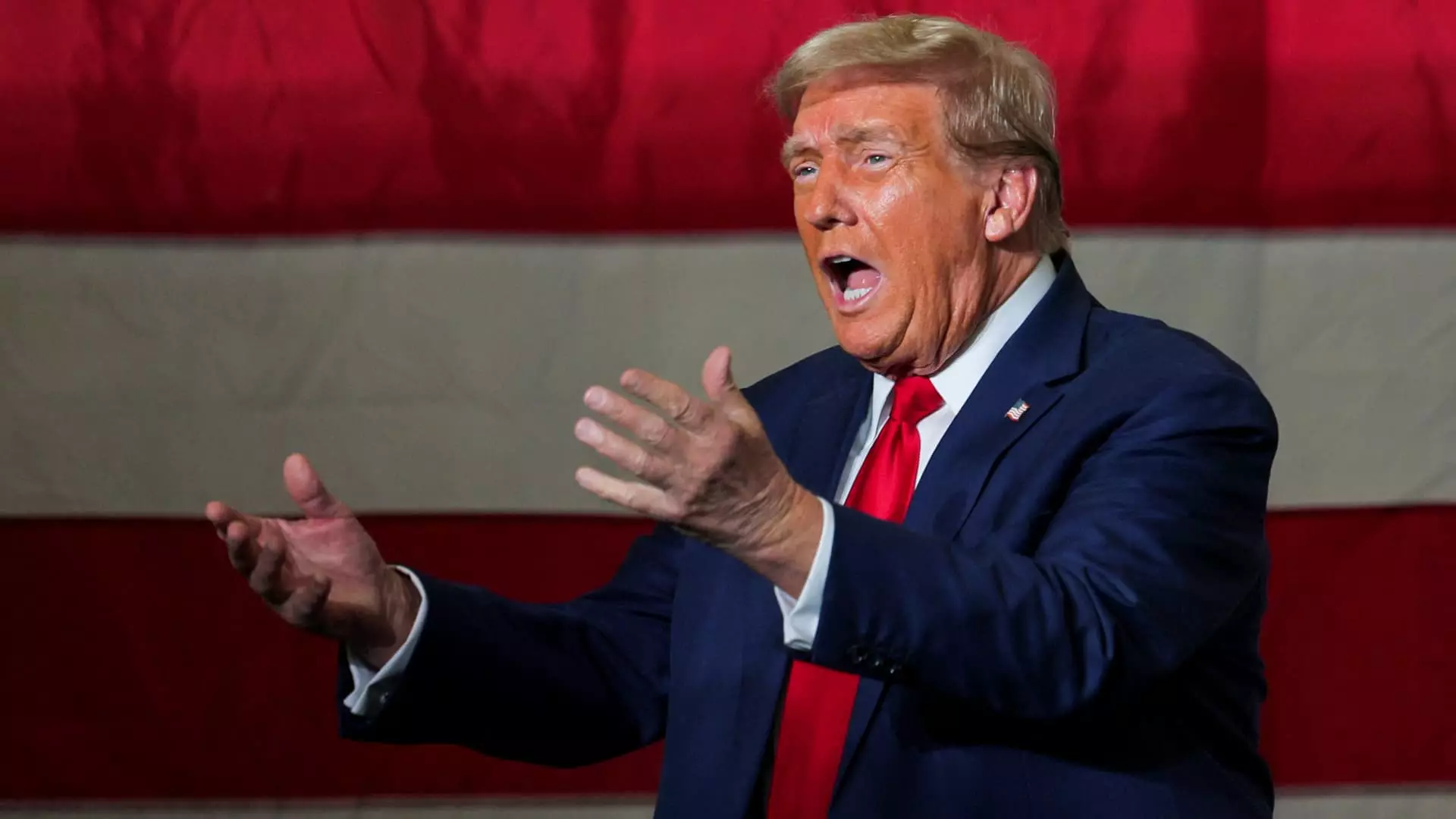The recent unsealing of Special Counsel Jack Smith’s motion against former President Donald Trump has cast a glaring spotlight on the complicated and contentious matters surrounding the allegations of election interference. This extensive 165-page document, unveiled on a Wednesday, meticulously outlines the rationale behind Trump’s ongoing prosecution despite a ruling from the Supreme Court that recognizes the former President’s presumptive immunity for official acts. The implications of this case extend beyond mere legalities, resonating deeply within the political and societal fabric as the nation gears up for the 2024 presidential race.
Contextualizing the Case Against Trump
At the heart of the motion is the Special Counsel’s assertion that Trump’s actions prior to and during the election complications represent a distinct departure from presidential conduct. Rather than acting in his capacity as an incumbent president, Trump purportedly engaged in a conspiracy to undermine the electoral process, associating with a network of private individuals in his unrelenting quest to overturn the election results. The Special Counsel’s argument delineates a clear boundary: while Trump occupied the highest office, the alleged schemes were not sanctioned presidential activities but private endeavors marked by deceit and fraud.
This distinction is vital. Smith’s office contends that Trump’s actions lacked the legitimacy of official duties, which ultimately complicates the defense’s attempt to leverage presidential immunity. By strategically framing Trump’s conduct as private in nature, the Special Counsel seeks to ensure that the legal ramifications of these actions are addressed without the barriers typically associated with presidential privilege.
The motion lays bare specific incidents that exemplify Trump’s alleged misconduct. One pivotal episode cited involves a campaign operative’s attempts to create chaos during the vote counting at the TCF Center in Detroit. The operative’s desperate requests for “options to file litigation” and provocative remarks advocating for unrest paint a sobering picture of the determination to disturb the election process. Such claims, if substantiated, suggest a premeditated strategy to disrupt the democratic process under the guise of seeking justice.
The gravity of these allegations is magnified by their connection to broader themes of accountability and integrity in elections—principles that form the bedrock of any democratic society. If Trump’s operatives actively sought to instigate confusion and violence, it raises profound questions regarding the sanctity of electoral procedures and the lengths to which individuals will go to maintain power.
Much of the filing also references former Vice President Mike Pence’s attempts to persuade Trump to acknowledge his electoral defeat. Interestingly, these interactions echo the themes of loyalty and betrayal that emerge frequently in political narratives. Pence, portrayed as a reluctant yet pragmatic figure, reportedly engaged in private discussions with Trump to map out a path forward, encouraging an acknowledgment of the election results. His attempts to frame the situation positively—advocating for a future-focused outlook rather than framing the loss as an irreversible defeat—illustrate the tensions that enveloped the White House during this period.
However, these private moments of counsel also reveal the broader rift within the Republican Party, as figures like Pence raised the alarm while grappling with Trump’s stubborn refusal to concede. This internal conflict among party leaders raises questions about the ethical and moral responsibilities tied to political allegiance. Should loyalty to a party supersede the obligation to uphold democratic principles?
The ramifications of this case extend beyond the judicial system; they intertwine with the upcoming 2024 presidential election, wherein Trump is set to confront Vice President Kamala Harris. If victorious, Trump could potentially wield his power to influence the Department of Justice’s course of action regarding this legal matter. Such a scenario poses existential threats to democratic norms and raises critical discussions about the intersection of politics and justice in contemporary America.
As the landscape continues to evolve, one thing remains clear: the outcome of this case will reverberate far beyond the courtroom. The principles of accountability, the legitimacy of the electoral process, and the expectations of those in power are all under scrutiny in light of these developments.
The legal peril faced by Trump underscores a culture of accountability that transcends party lines. As this legal saga unfolds, the American public watches closely—not only for the implications concerning Trump but also for the broader implications for democracy itself in a time of profound polarization. The case encapsulates a pivotal moment in American history, one where the actions of a leader during a crisis of confidence are being rigorously evaluated under the lens of justice, integrity, and the fundamental tenets of democracy.

Leave a Reply